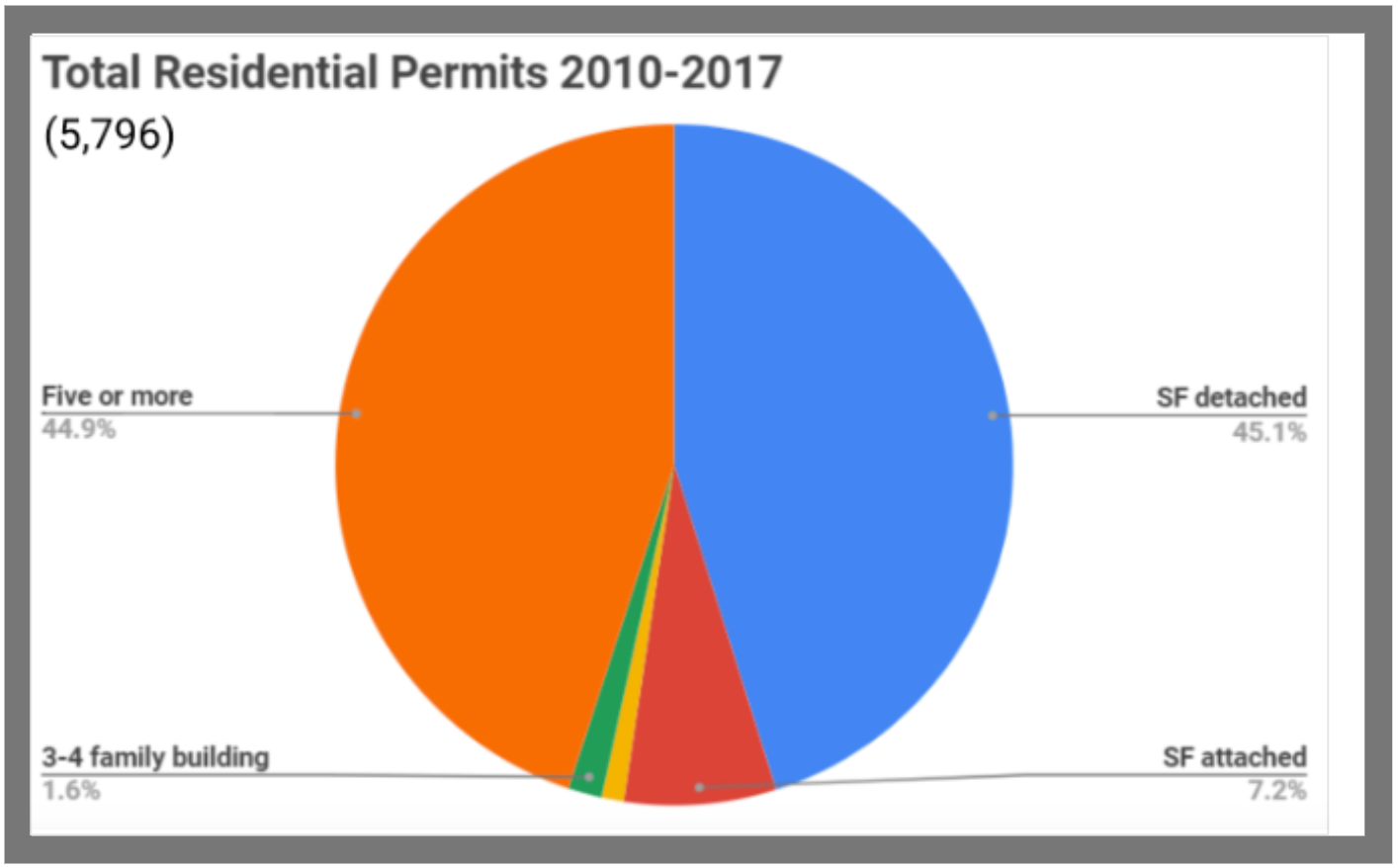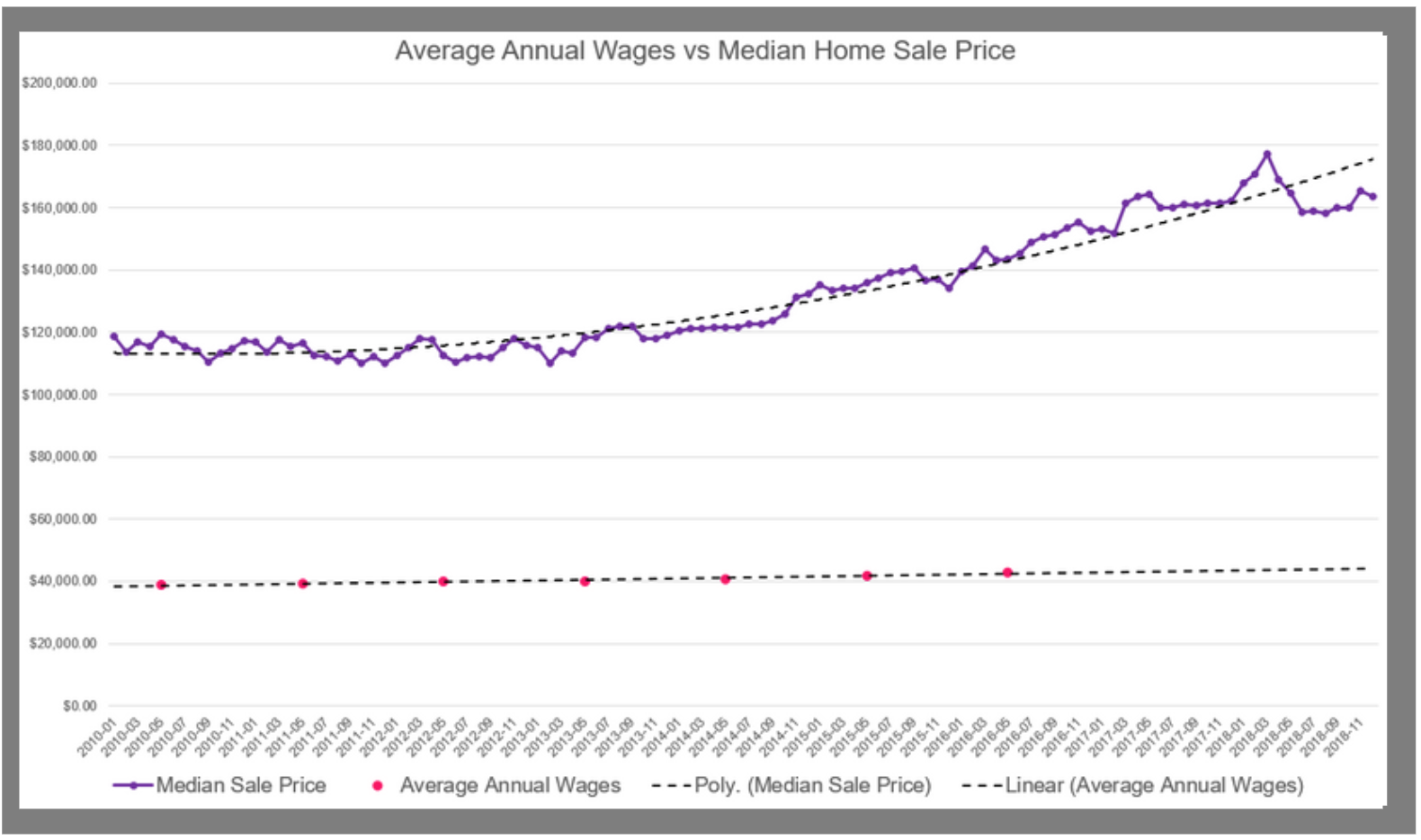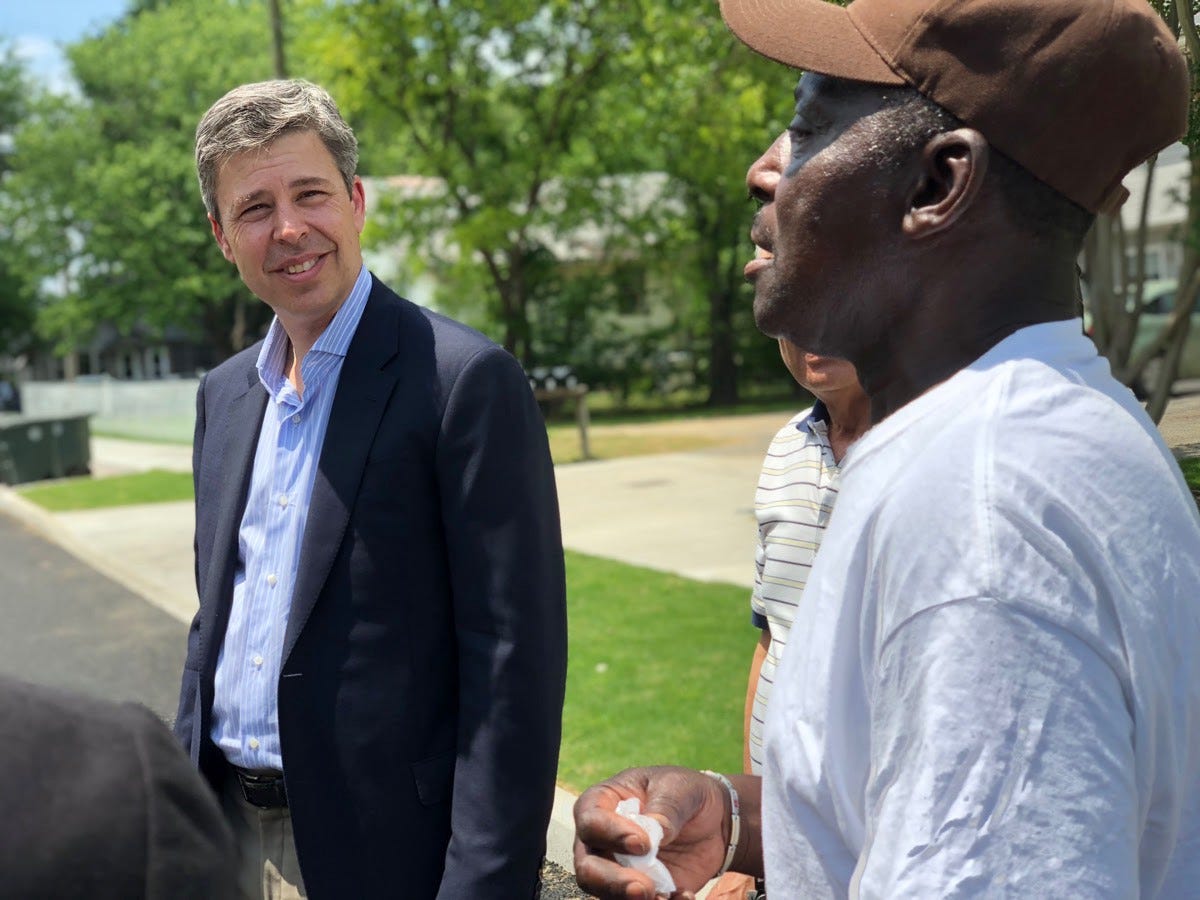One vision in 3 charts: What comes next for affordable housing in Chattanooga?
The City of Chattanooga’s Fiscal Year 2020 budget includes $1.8 million for our Affordable Housing Fund, which was established last year. This is a substantial amount of money that will do a lot to produce and preserve affordability across our city, and fits perfectly within Mayor Berke’s focus creating stronger neighborhoods.
But how exactly will this money work? Why are we doing it? And what do we mean by “affordable housing” anyway?
Let’s start with the last question first. In their recent Housing Connections Report, our Department of Economic & Community Development (ECD) makes a persuasive case that living in Chattanooga is becoming more and more expensive for a greater number of people. This 2017 story from the Chattanooga Times Free Press summarizes the situation pretty well — while housing prices have increased steadily every year since we exited the recession, available inventory of homes keeps dropping. The twin factors of dwindling supply and upward pricing pressure makes housing harder to reach for lower-earning families.

Chattanooga is fortunate to be considered one of the most dynamic and attractive communities in the country, with a vibrant economy and highly desirable quality of life. Our population is growing faster (by percentage) than any city in the state of Tennessee. But all of these new Chattanoogans have to live somewhere — and that puts even more pressure on land owners, builders, and regulators. Different family types want different housing types, and most of our construction delivers either single family detached homes or large apartment buildings. Smaller projects such as townhomes or quadplexes, make up less than 10% of the residential permits that were pulled by developers between 2010 and 2017.

Meanwhile, At a national level, we know that the minimum wage has remained stagnant for more than a decade while average home prices have increased more than 35%. Chattanoogans’ wages are struggling to keep pace with median home sale prices, as the graphic below vividly illustrates.

More Chattanoogans are feeling increasingly squeezed. A 2017 report from the Tennessee Housing Development Authority indicated that as many as 24.8% of Chattanoogans are paying more than 50% of their income on housing. This is unsustainable.
Mayor Berke announced the formation of the city’s first Affordable Housing Fund in 2018. The fund was capitalized with an investment of $1 million and we intend to add an additional $1 million per year for the next five years. The Affordable Housing Fund is designed to leverage city and federal funds to produce quality housing for people who are unlikely to be served by the private market. Our approach to affordable housing is two-fold:
- Preservation deals with low-income renters and homeowners who are at risk of being displaced from their homes. By providing assistance with critical repairs, the city and its partners allow citizens to remain in the homes and neighborhoods of their choice. Preserving housing stock allows older citizens to age in place, maintains continuity of schooling among children, and creates opportunities for wealth creation by letting residents build and keep equity in their homes.
- Production can mean building either new single-family or multi-family homes with the help of non-profit partners or subsidies for builders.
Creating more housing that is affordable to more Chattanoogans will be achievable when we let more and different housing types to be developed in our city — another critical recommendation from the Housing Connections action teams. Housing supply meeting housing demand will cause all prices to relax and ease the burden of housing costs citywide. This is why the FY20 budget also includes funds to comprehensively re-examine our zoning code so that every parcel in Chattanooga can reach its highest and best use.
Understand the many interlocking causes of our affordability challenges — and the many different ways we need to attack the problem — will make our neighborhoods stronger and will also help more families save money and build wealth. As Mayor Berke said when he announced the Affordable Housing Fund at 2018’s State of the City address:

“[Our] community needs more affordable housing, particularly near our job centers. Federal and state governments continue to reduce funding that cities use to make affordable housing possible, leaving us with fewer avenues to build more units. The problems haven’t gone away, but the money has, leaving places like Chattanooga in a lurch… As more people feel the security that comes from having an affordable place to call home, where they can make it to work and back in a reasonable time, we can grow incomes and career paths in our city.”
This is critical to our vision of building a new Chattanooga dream that works for everyone.
